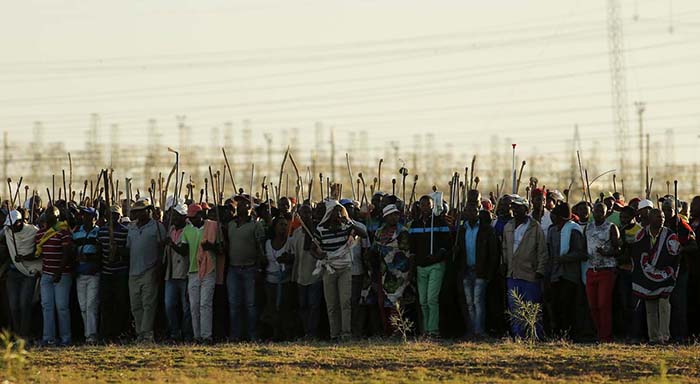Most employees in the higher categories could receive increases of between 5 percent and 7.5 percent in both years.
Increases to the living out allowance and housing allowance will vary from company to company.
"The producers have made a number of concessions during the course of wage negotiations," said Motsamai Motlhamme, head of Employment Relations of the Chamber of Mines.
"The offer on the table is significant and at the limit of what is affordable. We urge the NUM (National Union of Mineworkers) to seriously consider the impact of unrealistic wage increases and prolonged strike action on the industry and its ability to sustain jobs," he said.
Coal producers remain committed to seeking resolution to the dispute and to reach an agreement in the best interests of the industry and employees, Motlhamme said.
The NUM hasn`t responded to the new offer. It has been widely expected that the strike would end soon with the new offer.
More than 30,000 workers downed tools on Oct. 4 in a fresh wave of labor unrest that is hitting the sector hard. The workers were demanding a pay hike of 1,000 rand for workers in the lowest paid category. The employers were offering 300 rand instead.
The Chamber of Mines said earlier this week that the coal producers had raised their offer to increase wages by up to 8.5 percent for the lowest-paid workers from a previous 8 percent offer.
The NUM had rejected both offers. The union had been seeking a 50 percent rise for its lowest paid workers, who make about 6,000 rand a month in basic pay, but has since scaled that back to a demand of 1,000 rand, or an increase of about 17 percent.
The strike came as the country is facing a severe shortage of electricity, resulting in load shedding for almost one year. South Africa relies heavily on coal for electricity. Power stations have been forking out billions of rand to buy diesel to keep the lights on due to the shortage of coal.
Coal mining in South Africa produces enough coal to account for 94 percent of its energy production, according to the Chamber of Mines.
South Africa is one of the world`s biggest coal exporters and the industry directly employs close to 90,000 people.
More about:
















































